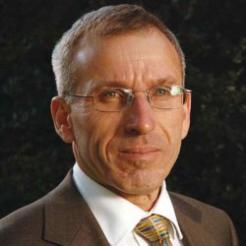Foundations must use their independence to stand up for the sector, and must work more closely to ensure they fund need across the UK, delegates at the Association of Charitable Foundations Annual Conference heard yesterday.
At the opening plenary on ‘Being Independent’, Andrew Hind (pictured), former editor of Charity Finance magazine and current chair of the Fundraising Standards Board, told delegates that the ACF and other foundations need to use their voice to stand up for the charity sector and protect the charity “brand”.
He said that the foundation sector has as much of a role to play as charities such as NSPCC and Save the Children in impacting the public’s perception of the charity sector as a whole, and impacts public trust in much the same way.
He said: “Charity foundations have the luxury of being more free to act completely independent of government than almost any other sub-sector of the charity world.”
But, he said, with “that status comes the responsibility to help the independence of the sector”.
Foundations collective voice
Hind said that foundations should work better together. He said that when Oxfam was criticised by MPs for speaking out against government policy, foundations should have spoken up to defend it.
“It would be wonderful to hear the collective voice of foundations asserting the right of charities to campaign against a cause,” he said.
Hind also said that ACF needs to take “more of a leadership role”, saying that is could and should do more to “become a true leader of the foundation sector”.
He said: “If foundations can rise to that challenge and help advance the charity brand, you can help build and sustain the public’s confidence in the sector.”
However, a member of the audience asked whether this approach is appropriate. She said: “Foundations have to ask the question, what is your role as un-elected bodies based on wealth in a democracy?”
Work together to fund charities
Paul Streets, chief executive of Lloyds Bank Foundation, England and Wales, speaking in another plenary session, said that charities needed to focus much more closely on ensuring that they funded need across the country.
Streets said foundations need to collaborate with each other, as well as with government to an extent, in order to ensure grant funding is dispersed evenly .
Echoing Hind's earlier comments on foundations working together, Streets said: “We should be completely obsessed with our dependence, not our independence”. He said that foundations need to “collaborate, collaborate, collaborate”.
He said that at present foundations were more generous in some parts of the country, and to some charitable sub-sectors.
Children England now independent from Whitehall
Speaking in the afternoon plenary, Children England’s chief executive Kathy Evans told delegates that her charity had reached a mile stone in that it was now completely independent from government, being free from Whitehall funding for the first time in 72 years. She said that this is thanks to a grant from charitable foundation the Tudor Trust which will cover the charity’s core costs for the next three years.
She said that independence is “important”, telling delegates: “I’d encourage you to not only be independent of government, but sometimes I’d encourage you to do things precisely in the ways government doesn’t want you to”.









